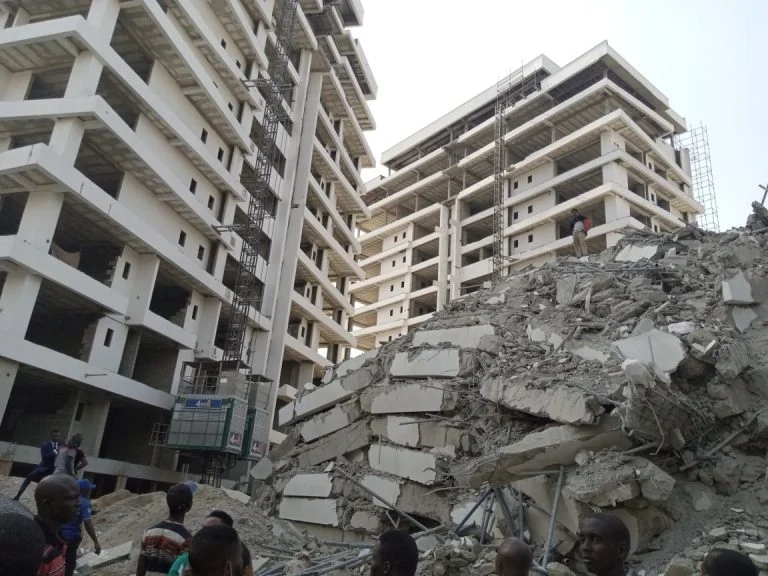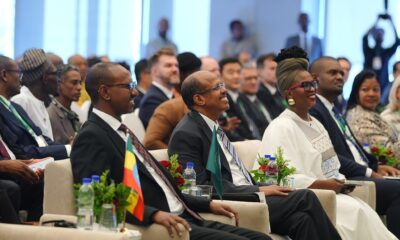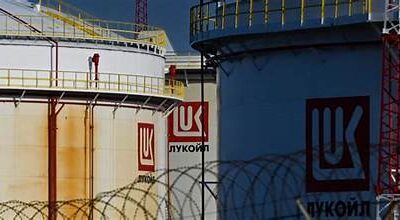National Issues
Beating The Law -By Kene Obiezu
It is not the first time a building has collapsed in Nigeria, trapping and killing many innocent people as well as bringing into sharp focus Nigerias preparedness for disaster management. It is also not the first time a lawyer has been brutalized in the line of duty. However, that these things keep happening under the nose of government agencies who should know and do better beggars belief, and hints at the darker underbelly of power in the country.

As the harrowing death toll from the collapse of the 21-story building in Ikoyi, Lagos, the Lagos State Building Control Agency firmly remains under public scrutiny public scrutiny under which it clearly appears that the Agency prefers to preoccupy itself with brutalizing lawyers while shoddily doing its job of ensuring the structural integrity of buildings in the state.
A Nigerian lawyer, Mr. Nwota Chinedu, has narrated his experience at the hands of men of the LASBCA who at the instruction of the General Manager, took time to beat him to a pulp for having the temerity to serve a court order on the Agency.
Apparently, while the LASBCA was busy beating up a lawyer who was only doing his job, its statutory functions were conveniently ignored in another alarming instance of official high-handedness in Nigeria.
Lagos is a peculiar state. It is not for nothing that the state is Nigerias - and Africas? – capital of thuggery. Residents of the state are now used to the thugs colloquially referred to as ‘agberos’ who engage in everything from petty crimes such as charging taxes without remitting same to the government, terrorizing neighborhoods and robbing passengers, to political thuggery such as rigging election for corrupt politicians thus contributing in no mean measure to Lagoss status as one of Africas most crime-infested cities. So notorious have they become that they enjoy political patronage. Sometime last year, Mr. Obafemi Hamzat, the Lagos State Deputy Governor, bizarrely stated that the thugs, colloquially known as ‘agberos’, could not be banned in the state because ‘they are our brothers and cousins’.
In a sop to them, Mr. Hamzat even drew a perverse parallel between the National Union of Road Transport Workers, whose rank they swell, and the eminent Nigeria Medical Association, the umbrella body of medical doctors in Nigeria.
Perhaps, having used them severally for many nefarious assignments, Mr. Hamzats potent mix of fear and gratitude toward them is not misplaced. There is no doubt that many of them have found their way into government agencies in the state where they pose as responsible government employees while waiting patiently for the slightest opportunity to drop their disguise to become the criminals they truly are.
Because they put force before finesse, they are unable to properly grasp the delicacy of the jobs that have been apportioned them more out of Nigerias obsequiousness to nepotism than merit. Thus, while they beat up lawyers, the buildings, whose integrity they are supposed to guarantee, crumble, burying in their rubble hapless workers.
It is not the first time a building has collapsed in Nigeria, trapping and killing many innocent people as well as bringing into sharp focus Nigerias preparedness for disaster management. It is also not the first time a lawyer has been brutalized in the line of duty. However, that these things keep happening under the nose of government agencies who should know and do better beggars belief, and hints at the darker underbelly of power in the country. Mr. Nwota Chinedu was allegedly told by men of the Lagos State Building Control Agency that the law will be beaten out of him. It begs the question: who is afraid of the law in Nigeria? In Nigeria, there are those for whom the law is a pesky inconvenience. For them, the laws that should operate in the country are the laws they promulgate themselves which bend to their particular whims and caprices. For them, the rule of law is a mirage which only mirrors weakness. In a country where power is mostly used in abuse, this group of people include many public officers who occupy public offices in Nigeria and their appointees. They beat and break the law many times over by doing things outside its prescripts and refusing to follow its dictates. At the slightest provocation, they unleash their pack of jackals on Nigerians.
So, in Nigeria, the confidence one has, and the convenience one enjoys, are invariably tied to the connection one has to those in positions of power. This has become a rampant problem as many overzealous public officers, engaging their wild inclinations for duplicity, and touting Nigerians lack discipline, waste no time in unleashing terror at the slightest perception of affront.
While they engage in their orgies of power drunkenness, they lose sight of their responsibilities. So, things go awry: public funds go unaccounted for; contracts are abandoned; public infrastructure decay, insecurity roils, and of course, public buildings collapse.
Nigerians must again evaluate the character of those who occupy their public offices and their iron fisted sycophantic political appointees.
Nigerians must ask uncompromising questions of those who appoint them for it appears that Nigeria has not just become a place for elite law breakers, but a haven for elite law beaters as well.
Kene Obiezu,
keneobiezu@gmail.com










